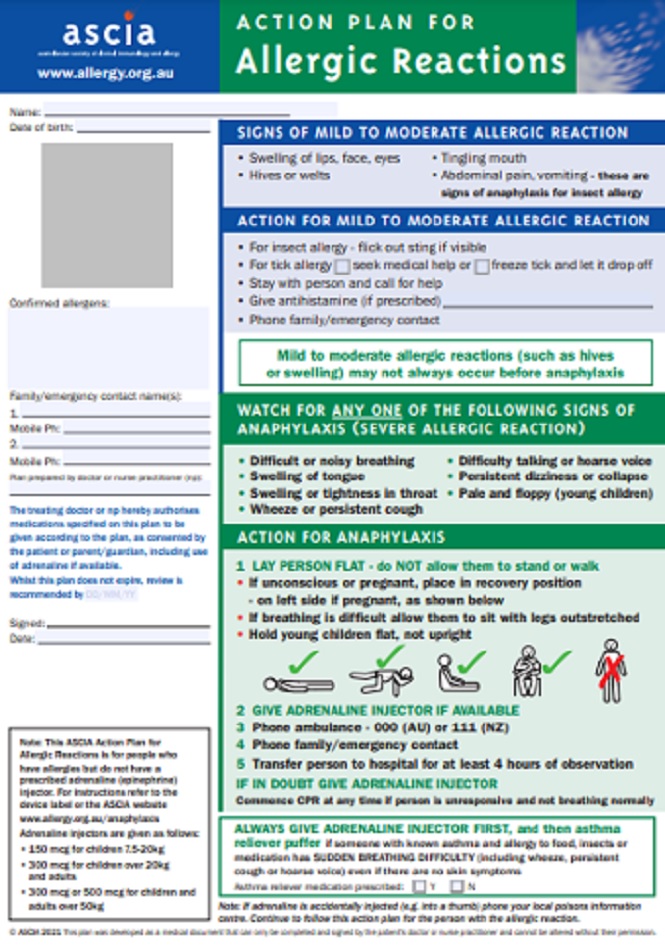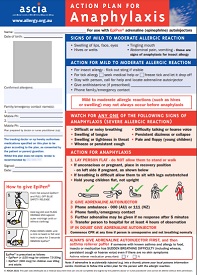Check your medicines and action plans are up to date and take time to visit the school before your child starts.

Image credit: Canva
Communicate with the school
- Tell the school about your child's allergy as early as possible. Be clear about which foods or other allergens may trigger an allergic reaction.
- Visit the school and ask about potential risks. For example:
- Are children exposed to food allergens during cooking and craft lessons?
- Is there a school policy about children sharing food?
- How do they make sure that relieving teachers, tuck shop staff and before/after school carers are familiar with student's needs?
- Provide the school with an up-to-date action plan from your healthcare provider. This should include:
- details of prescribed medicines, such as adrenaline or antihistamines
- a recent photograph of your child.
- Make sure appropriate staff members are trained, and confident to administer medicines at the first sign of an allergic reaction.
- For anaphylactic reactions, Allergy New Zealand provide free trainer EpiPens® for anyone to practice with or schools can sign up to MyEpiPen®(external link) to request a trainer pen.
Prepare your child to start school
You can prepare your child to start school by teaching them how to recognise what they are allergic to, not to swap or share food, to keep their hands out of their mouth and what to do if they have a reaction.
- Teach your child not to put their hands in their mouth, and to wash their hands with soap and water if they get food on their skin.
- Provide a lunchbox that is clearly labelled with their name. Be creative in providing safe food treats for your child.
- Teach them not to accept food from others and why this is important.
- Teach them not to share water bottles as another person may have recently eaten a food containing something your tamariki is allergic to.
- For the same reason, teach your child not to put their mouth directly on the drinking fountain and to let water run over the bubbler before drinking from it.
- Provide your child with their own pens and pencils and make sure they don't share them. Some children suck these, putting your child at risk.
- Encourage your child to become independent. Some children are comfortable taking their adrenaline auto-injector (such as an EpiPen) with them wherever they go. It can be kept in an insulated lunch bag, together with a copy of the emergency action plan. You could also discuss the option of wearing a medical information bracelet or chain with your child.








